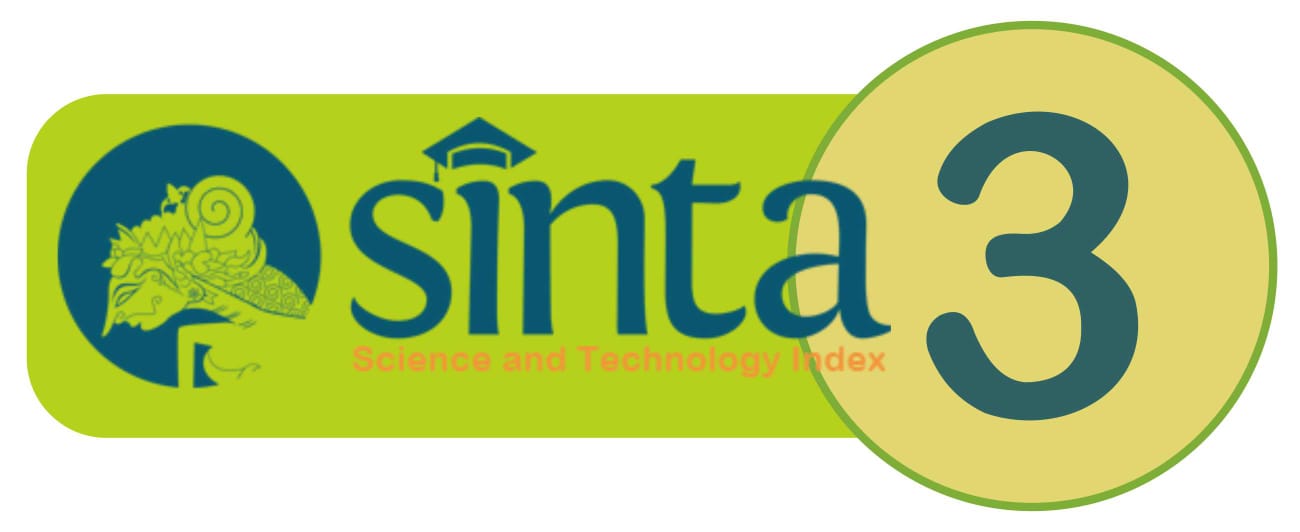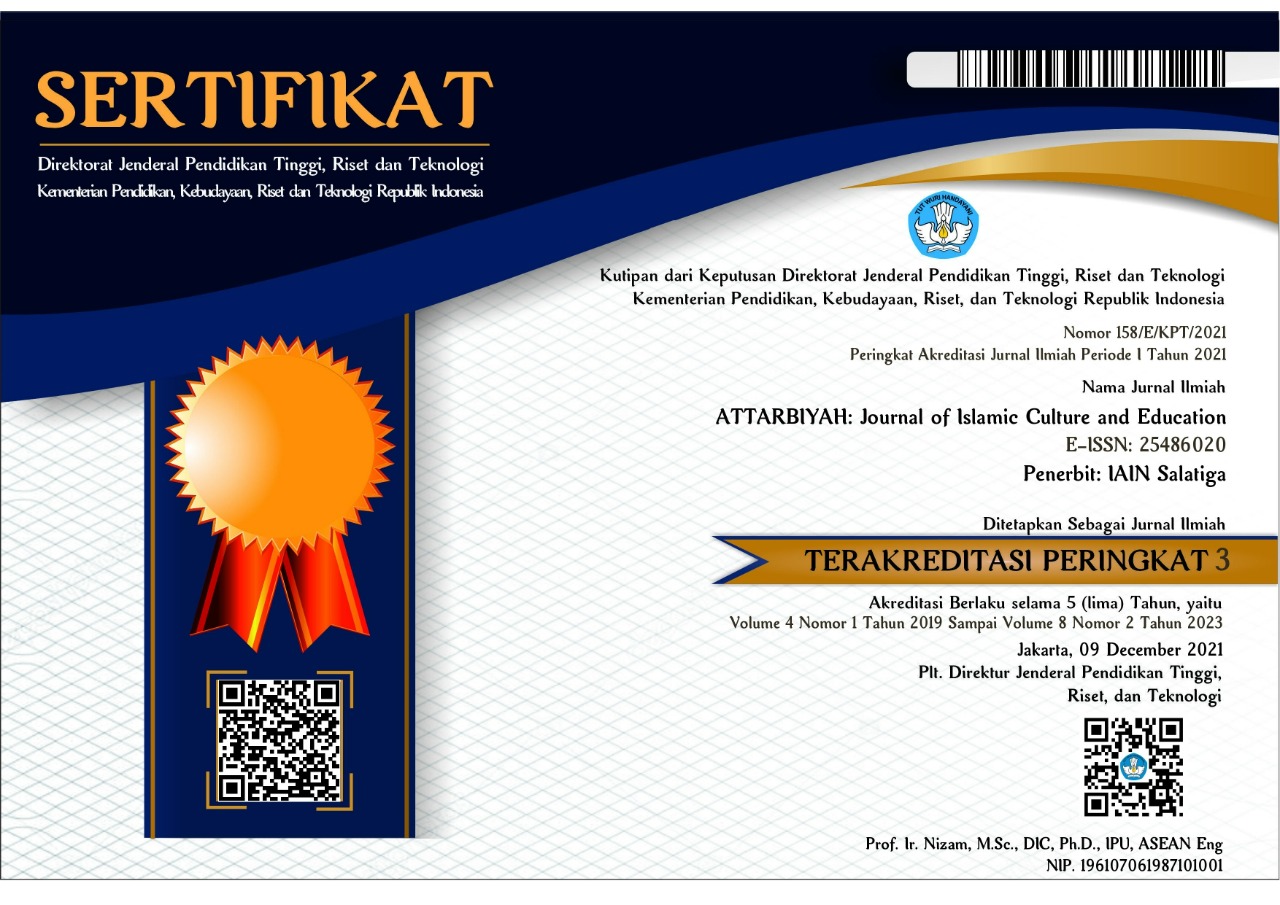Character Education Based On Religius Values (Analysis Study In The Majlis Taklim Dzikir Sholawat Syadziliyah Ta’mirul Islam Surakarta)
Abstract
Keywords
Full Text:
PDFReferences
Amin, Syukur. (2010). Pengantar Studi Islam, Semarang, Pustaka Nuun.
Djatmika, Rachmat. (1996). Sistem Etika Islami (Akhlak Mulia), Jakarta : Pustaka Pajimas.
Djojosuroto, Kinayati. (2000). Prinsip-prinsip Dasar Penelitian Bahasa Dan Sastra. Bandung: Yayasan Nuansa Cendekia. Cet. I,
Echols, Jhon M dan Sadily, Hasan. (1987). Kamus Inggris Indonesia, Jakarta : Gramedia, , Cet.XV
Ensiklopedi Islam 5. (1994). Jakarta : PT Ichtiar Baru Van Hoeve.
Hamzah, Ya’qub. (1998). Etika Islam: Pembinaan Akhlakul Karimah, (Suatu Pengantar), Bandung : CV. Diponegoro , Cet. IV.
https://id.wikipedia.org/wiki/Pendidikan, diakses hari senin, tanggal 27 Agustus 2018, Jam 20.44 WIB
http://ulashoim.blogspot.com/2013/05/arti-penting-pembelajaran-konsep-dan.html, diakses hari senin tanggal 27 Agustus 2018, Jam 21.25 WIB.
Lickona, Thomas. (1991). Education for Character, How Our School Can Teach Respect and Responsibility, ( New York, Toronto, London, Sydney, Aucland: Bantam book.
Purwadarminta, dkk. Kamus Besar Bahasa Indonesia, Jakarta : PT. Balai Pustaka, tt
Ryan, Kevin dan Karen E. Bohlin. (1999). Building Character in Scools : Practical Ways to Bring Moral Instruction to Life, San Fransisco : Jossey Bass.
Taufiq, Ahmad, all. (2016). Pendidikan Agama Islam, Pendidikan Karakter Berbasis Agama Islam, Surakarta : LPPMP Universitas Sebelas Maret
Yunus, Muhamma (2007). Ilmu Pendidikan Islam, Jakarta: Bulan Bintang.
DOI: https://doi.org/10.18326/attarbiyah.v4i1.88-106
Refbacks
- There are currently no refbacks.

ATTARBIYAH: Journal of Islamic Culture and Education by http://attarbiyah.iainsalatiga.ac.id/ is licensed under a Creative Commons Attribution-ShareAlike 4.0 International License
----------------------------------------------------------
ATTARBIYAH : Journal of Islamic Culture and Education IAIN SALATIGA p-ISSN: 0215-9996, e-ISSN: 2548-6020



